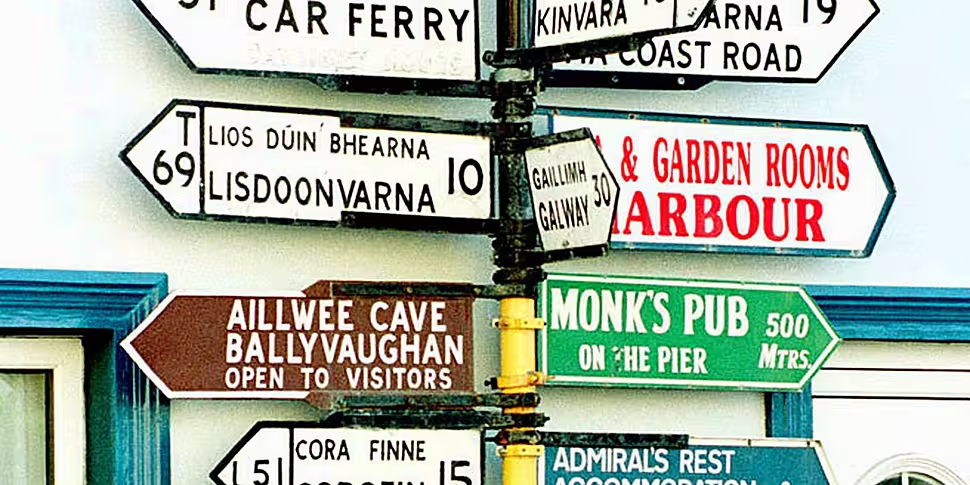Next Monday marks the 20th anniversary of the first broadcast by TnaG - or TG4, as it is now known.
The first Irish language TV station in the country was designed to help protect Gaeilge as a 'living language'.
Has it worked? Do we need to do more to preserve our native tongue?
The Pat Kenny Show's Richard Chambers went to the Gaeltacht areas to see what they thought.
There have been serious concerns expressed over the past few years since the financial crisis about Irish as a working language.
Údarás na Gaeltachta - who is taked with bringing jobs to these areas - has seen severe funding cuts in recent years.
It is operating at just over 50% of what it was back in 2008, with no increase this year.
But, perhaps more worryingly, is that contentious report by Údarás itself - released last year - which concluded that Irish will no longer be the primary language of the Gaeltacht in 10 years time.
Richard visited Spiddal and Inverin - An Spidéal and Indreabhán - in the Conamara Gaeltacht. Even there, there were serious concerns about the future viability of Gaeilge.
"You'd still hear it 50/50 - still it's more the older generations that their first instinct would be to speak it. It's an uphill battle, isn't it, against English", one man said.
The report found of the 155 Gaeltacht electoral divisions, only 21 were ones where more than 67%of the public speak Irish on a daily basis.
There is also a concern that the language is being confined to the classroom among younger people in Connemara.
But under the Irish Languages Act, there is no official requirement that the State services need to be done through Irish in Gaeltacht areas.
Dónal runs Irish classes in Connemara. He says the Government is paying ‘lip service’ to the Irish language - and the lack of teeth for the Irish Language Commissioner is the most pressing concern.
"I think the State has never been serious about Irish, especially from the '60s until today.
"A good example: I as a native speaker expect services from the State through Irish. I talk to the Revenue Commissioners, I talk to other various State bodies through Irish, or e-mail them in Irish or write letters in Irish.
"Except for the Revenue Commissioners, all the answers I get back are in English."
The Programme for Partnership Government says "the Irish language is of crucial importance to our heritage and culture...the new Government needs to systematically implement the 20-year strategy for the Irish language".
That strategy sets out to increase the number of daily speakers from 87,000 now to 250,000 by 2030.
In terms of an overall figure for annual language support, Ed Walsh says about 1.2 billion - that figure is a little misleading in the very least because it includes support for teachers who you would want to be teaching anyway.
That figure was thrown into focus recently by a video ‘An Bhfuil Cead Agam’ by journalist Eoin Butler, which kicked off quite a row online about funding for Irish - which he said should be taken off life support.
He says the State should stop paying out millions to translate official documents into Irish - and he has some thoughts about it being taught in schools.
"The mandatory Irish - it doesn't work, it's ineffective, it costs loads of money, it should be scrapped".
What about its future?
In Dublin, you hall have businesses and social groups who work entirely through Irish.
Groups like Misneach which is about grassroots language recovery - and arts and cultural blogs like Nós and As An Nua.
So outside of the confines of the summer schools and education, there is a lot going on.
Rose is one woman in Connemara who came here from America years ago and is still fighting for the language.
But first, in Galway a group of non-native speakers who just meet up every Tuesday morning and talk about their lives through Irish.
Hear the full report below:









